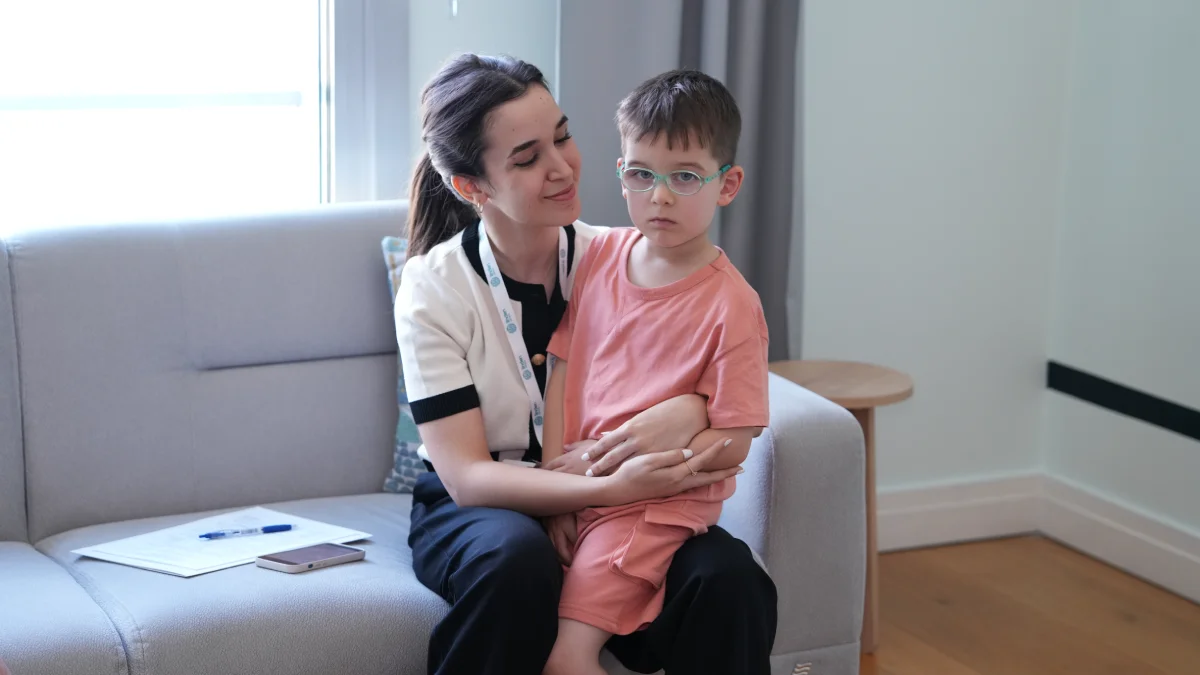Autism and diabetes may seem like unrelated conditions at first glance, but research has begun to uncover intriguing connections between them. Both disorders share certain underlying mechanisms, including inflammatory responses, immune system dysfunction, and metabolic irregularities. For individuals with autism, especially those with comorbid diabetes, understanding these shared pathways is crucial for improving care and treatment options. In recent years, stem cell therapy for autism has emerged as a potential treatment, raising questions about its effectiveness in addressing not only autism but also related conditions like diabetes. In this article, we will delve into the connection between autism and diabetes and explore how stem cell therapy may offer hope for both conditions.
The Link Between Autism and Diabetes
Research has shown that individuals with autism spectrum disorder (ASD) may have an increased risk of developing other health issues, including metabolic disorders like diabetes. While the exact mechanism linking these two conditions is still under investigation, some common factors have been identified.
1. Immune System Dysfunction
Both autism and diabetes, particularly Type 1 diabetes, involve immune system dysfunction. In Type 1 diabetes, the body mistakenly attacks insulin-producing cells in the pancreas, while in autism, immune system abnormalities can contribute to neurodevelopmental issues. Some studies suggest that inflammation and immune system imbalances may play a role in both conditions.
2. Metabolic and Hormonal Imbalances
Hormonal imbalances, particularly those involving insulin and blood sugar regulation, can affect brain function. In some cases, individuals with autism may have irregularities in glucose metabolism, which could contribute to both autism and diabetes. It is believed that these metabolic imbalances may affect the brain’s development, leading to both conditions.
3. Genetic Factors
Some genetic mutations linked to autism also seem to predispose individuals to metabolic disorders. These shared genetic factors might help explain why both autism and diabetes are more commonly observed together in certain individuals.

Stem Cell Therapy: A Potential Solution for Autism and Diabetes?
Stem cell therapy has been gaining attention for its potential to treat a variety of conditions, including autism and diabetes. Although much of the research is still in its early stages, clinical trials and success stories are beginning to emerge, showing promise for those affected by both conditions.
1. Stem Cell Therapy for Autism: Overview
Stem cell therapy for autism involves using stem cells to repair or regenerate brain cells and neural pathways that are affected in individuals with autism. While the success rates of stem cell therapy for autism are still being studied, early research and clinical trials suggest that it may help improve communication skills, social interaction, and behavior in some children with autism. Moreover, stem cells may help regulate immune responses and inflammatory processes, potentially benefiting those with comorbid conditions like diabetes.
2. Stem Cell Therapy for Diabetes: Promise for Insulin Production
Stem cell therapy has also shown promise in treating diabetes by potentially regenerating insulin-producing cells in the pancreas. This could help individuals with Type 1 diabetes who struggle with insulin production. Although this therapy is still experimental, its potential to address both diabetes and autism is being explored, particularly for individuals who suffer from both conditions simultaneously.
3. Clinical Trials and Success Stories
A number of clinical trials and success stories have documented improvements in autism symptoms following stem cell treatment. Some individuals with both autism and diabetes have reported better blood sugar regulation and improved cognitive function after undergoing stem cell therapy. However, it’s important to note that these results vary, and more research is needed to determine the long-term effects of stem cell therapy on both autism and diabetes.
How Effective is Stem Cell Therapy for Autism?
While stem cell therapy for autism has shown some promising results, its effectiveness varies from patient to patient. Many parents and caregivers have shared positive reviews of stem cell therapy for autism, reporting improvements in their child’s behavior, communication, and overall well-being. However, it’s important to manage expectations, as not all individuals respond the same way to this treatment.
Key Considerations:
- Personalized Treatment: The success of stem cell therapy often depends on the specific needs of the individual. Some children may experience significant improvements, while others may show minimal change.
- Types of Stem Cells Used: Different types of stem cells, such as autologous stem cells (from the patient’s own body) and mesenchymal stem cells, are being used in clinical trials, with varying degrees of success.
- Potential Side Effects: While generally considered safe, stem cell therapy can have side effects, including inflammation or allergic reactions. It is crucial to consult with a medical professional before pursuing this treatment.
Stem Cell Therapy for Autism and Diabetes: Cost and Availability
The cost of stem cell therapy for autism varies widely depending on the clinic, the type of stem cells used, and the number of treatments required. On average, families can expect to pay several thousand dollars per session. For those with diabetes, stem cell treatments are still experimental, which means that insurance coverage is typically not available, adding to the overall cost.
Finding the Best Stem Cell Clinics for Autism:
When searching for stem cell therapy for autism near you, it’s important to find a reputable clinic that specializes in both autism and diabetes treatments. Look for clinics with experienced professionals and positive reviews, and consider seeking out institutions that are conducting clinical trials or have strong research backing their treatment protocols.
Conclusion
The connection between autism and diabetes is an area of growing interest and research. While both conditions involve complex biological processes, stem cell therapy is emerging as a potential solution for managing and possibly improving symptoms. Although more research is needed, early studies and clinical trials offer hope to individuals who live with both autism and diabetes. If you’re considering stem cell therapy for autism or diabetes, it’s crucial to work with a healthcare provider to determine the most appropriate treatment plan.
FAQs
How effective is stem cell therapy for autism?
While stem cell therapy has shown promise, its effectiveness varies from individual to individual. Many patients experience improvements in communication and behavior, but more research is needed to confirm its long-term benefits.
What is the cost of stem cell therapy for autism?
The cost of stem cell therapy for autism can range from several thousand to tens of thousands of dollars, depending on the clinic and the treatment plan.
Are there any side effects of stem cell therapy for autism?
Some potential side effects include inflammation, allergic reactions, and temporary discomfort. However, these side effects are generally rare and should be discussed with a healthcare professional before proceeding with treatment.
Are there any clinical trials for stem cell therapy for autism and diabetes?
Yes, there are ongoing clinical trials exploring the use of stem cell therapy for both autism and diabetes. Consult with a healthcare provider or research institution to learn more about available trials.
